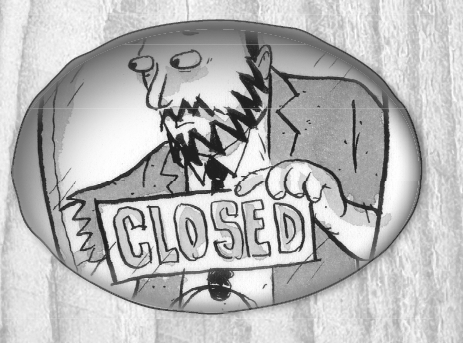
Eventually, as Fish Reserve Notes continued to pour out of Usonia and pile up on islands throughout the ocean, some foreign holders began questioning the ability of Usonia to redeem them with actual fish.
Chuck DeBongo, the charismatic leader of the Bongobians, gained favor at home by deriding the arrogance and power of Usonia. Believing that the acceptance of Fish Reserve Notes was unnecessarily enhancing Usonia's economic power, he started to send more and more of his financial agents to the bank's fish window to exchange his notes for real fish.
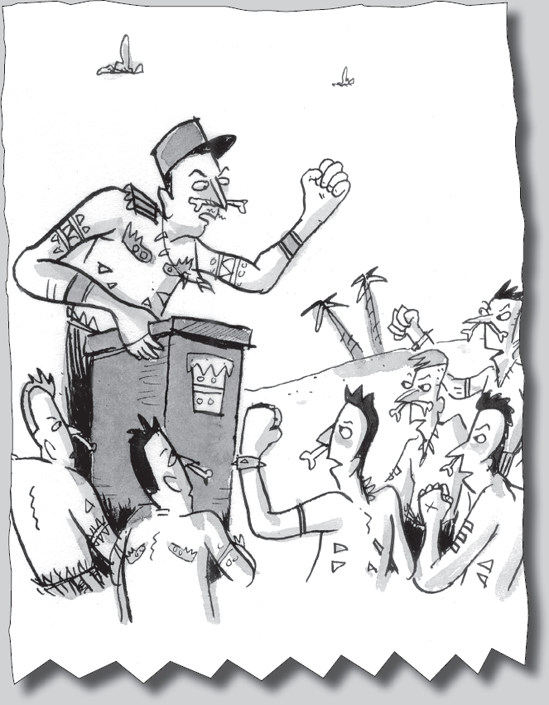
When those withdrawals started to make a real impact on the fish reserves, the technicians had to get busy again. As they sliced and diced, official fish once again became noticeably smaller, causing fishflation to rear its slimy head.

Consequently, the island's economy deteriorated once again.
The new Senator-in-Chief, Slippery Dickson, was told by his economic advisors that if other islands followed the Bongobians' lead, an oceanwide run on the Fish Reserve Bank could empty the vault of fish and wipe out the value of the notes.
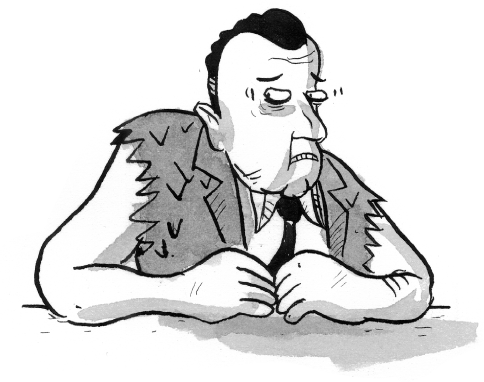
Barnacle and the senators started to worry.
Lacking the spine to ask for tough choices from his citizens, Slippie (as he was known), decided to pin the losses on foreigners. He took the bold step of closing the bank's fish window to foreign depositors! From now on, the value of Fish Reserve Notes on the international market would be determined only by what someone was prepared to trade for them, not because they could be redeemed for fish. In truth, the notes' value would hang on Usonia's status as a great economic and military power.
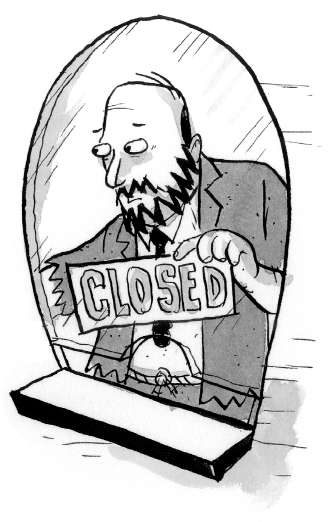
The breaking of the "fish standard" caused many islands around the ocean to lose confidence in the notes. Not surprisingly, their value dropped sharply. But as they were still the most common form of money across the ocean, the fall eventually stabilized. Fortunately for the Usonian Senate, the closing of the fish window allowed the currency crisis to pass without bringing on a regime-changing catastrophe (the only real danger as far as the senators were concerned). Slippie breathed a sigh of relief.
Chuck DeBongo fumed and made threatening speeches. But his efforts proved largely symbolic—Usonia's power was unassailable.
Unfortunately, Slippie himself was later brought down by the subsequent Watersnake Scandal, in which he was caught with a large cache of stolen reptiles.
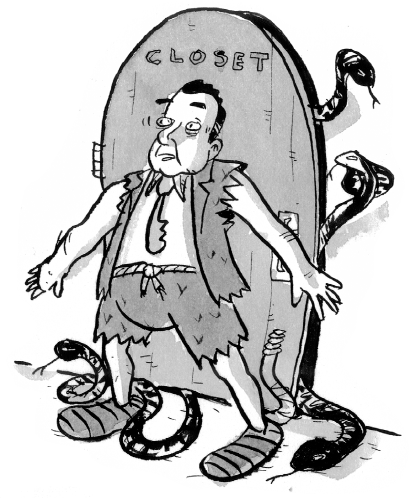
With the currency crisis in the past, fishflation largely under wraps, and Fish Reserve Notes maintaining their status despite the closing of the fish window, the Usonian economy settled down. A few years later, a boost toward prosperity was provided by the election of Roughy Redfish to Senator-in-Chief.
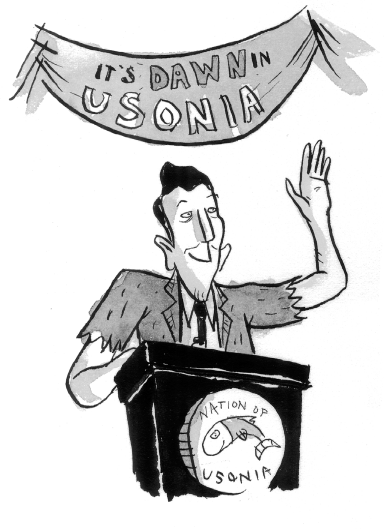
Roughy succeeded in lowering taxes, rolling back some burdensome regulations, and reducing barriers to free trade with other islands. However, he failed in his promise to reduce government spending. Despite the favorable business climate he instilled, the difference between what the Senate spent and what it raised in taxes continued to grow. In fact, under Roughy's watch, the gap widened dangerously.
Fortunately, fresh fish from foreign sources continued to roll into the bank. The notes that were used to pay for these fish were exported and never redeemed for actual fish. With such a favorable dynamic in place, Usonia set sail into what appeared to be an era of unprecedented prosperity.
From the beginning of recorded history, humanity has used all sorts of things as money. Salt, shells, beads, livestock—all had their day. But over time metals, particularly gold and silver, have emerged as the most widely used forms of money. This is not an accident. Precious metals have all the qualities that make money valuable and useful: scarcity, desirability, uniformity, durability, and malleability.
Even if people didn't want the metal as money, it still had value based on its other uses and relative scarcity.
In contrast, paper money has value only as long as enough people agree to take it in exchange for goods and services. But that makes its value completely subjective. Since it can be produced at will, and has no intrinsic value itself, the paper can become worthless if enough people lose faith in it.
Although economists talk like they have seen it all before, the truth is humanity simply has no long-term precedent for universal economic activity based on irredeemable paper money.
History can show us many episodes in which individual governments, out of fiscal desperation, hitched their wagons to worthless currencies. Those experiments always ended in grief, especially for the citizens of the offending country.
That's because it is impossible for one country to sustain a worthless currency while its neighbors continue to issue real money. Naturally, foreigners would refuse to take the worthless currency, and eventually a black market for real money would arise in the country itself.
But now we are in a "through the looking glass" world where, for the past 40 years, no country issues real money. This is the biggest monetary experiment ever conducted. No one knows how or when it will end. But rest assured, it will.
